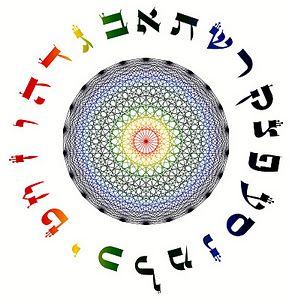Ariel Ben Avraham – Ecclesiastes: The illusion of vanity and the reality of love (XXXVI)
“In the day that keepers of the house tremble, and men of strength have bowed themselves, and grinders have ceased, because they have become few. And the watchers at the windows have become dim, and the doors shall be shut in the street. When the sound of the grinding is low and one shall rise up at the voice of a bird, and all the daughters of song shall be brought low. Yes, they shall be afraid of heights, and terrors will be in the way; and the almond tree shall blossom, and the grasshopper shall be a burden, and desire shall fail; because man goes to his everlasting home, and the mourners go about the streets.” (Ecclesiastes 12:2-5)
These verses refer to evil in its darkest hour, when there is no hope to be redeemed from its ways, traits and trends that seem to seize goodness from human consciousness as the “house” where the “keepers” tremble.
These keepers and watchers along with the “strength” to “grind” become scarce when goodness must be defended in order to make it prevail against evil.
The joy in the hearts as the song of the positive traits and trends (“daughters”) become low and dim, as life at the end of its journey in the grave. The altitude required for the right attitude also become as low as the ground.
“While that the silver cord is not removed, and the golden bowl broken, and the pitcher broken by the fountain, and the wheel broken at the well. And the dust returns to the earth as it was, and the soul returns to God who gave it. Vanity of vanities, said the Kohelet, all is vanity!” (12:6-8)
Once death arrives as a consequence of living in the emptiness of futility under the sun, is appropriate to say that all is vanity. Ego’s fantasies and illusions seem to reign in the material world, aimed to take away the lifeline of the soul that God has given us to know Him in His ways and attributes as the source of all that is good, for in goodness we begin to know the Creator of all.
“And further, because the Kohelet was wise, he still taught the people knowledge, and gave ear, and sought out, he made right many similes. The Kohelet sought to find out pleasing words written by the upright words of truth. Words of the wise are as goads, and as fences planted by the masters of collections, they have been given by one Shepherd.” (12:7-11)
This is the wisdom as the knowledge of God that the Kohelet, King Solomon, taught to help us find the joy in the “right many smiles” of goodness, for in the one Shepherd that the Creator is, we find the pleasing “upright words of truth”.
These are the goads and fences planted by the positive ways, means, and attributes of goodness, given by God as the qualities that sooner than later will collect their fruits in the field of life in this world.
- Ariel Ben Avraham
- Kochav Yaakov, Safed, northern Galilee, Israel
- Ariel Ben Avraham (f. Zapata) was born in Cartagena, Colombia in 1958. After studying Cultural Anthropology in Bogotá moved to Chicago in 1984 where he worked as a television writer, reporter and producer for 20 years. In the 1990’s he produced video documentaries related to art, music, history and culture such as “Latin American Trails: Guatemala” distributed by Facets.org. Most of his life he studied ancient spiritual traditions and mysticism of major religions, understanding the mystic experience as the individual means to connect with the Creator of all. Since 2004 he studies and writes about Jewish mysticism and spirituality mainly derived from the Chassidic tradition, and the practical philosophy of the teachings of Jewish mystic sages. The book “God’s Love” is the compilation of many years studying and learning Jewish mysticism. The messages of his book are part of the content, exercises and processes of a series of seminars, lectures and retreats that he facilitates in Israel









